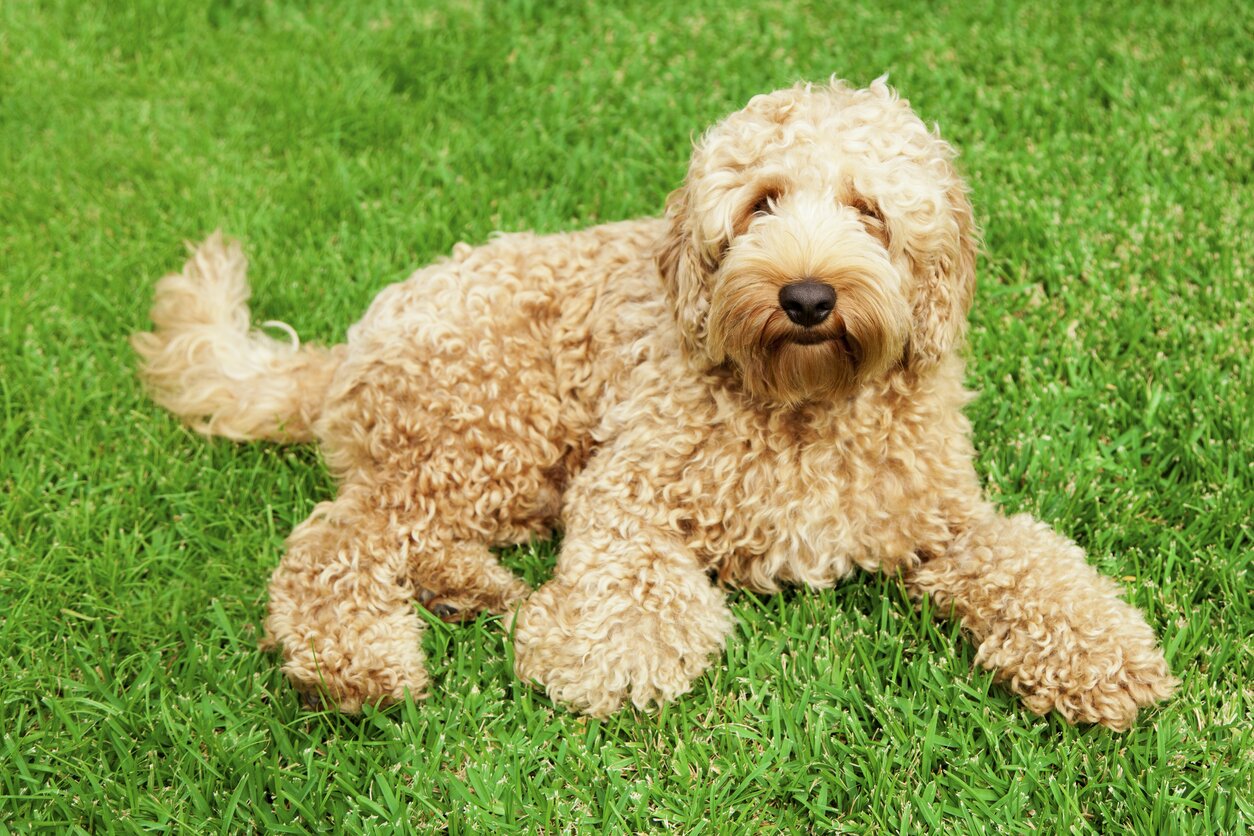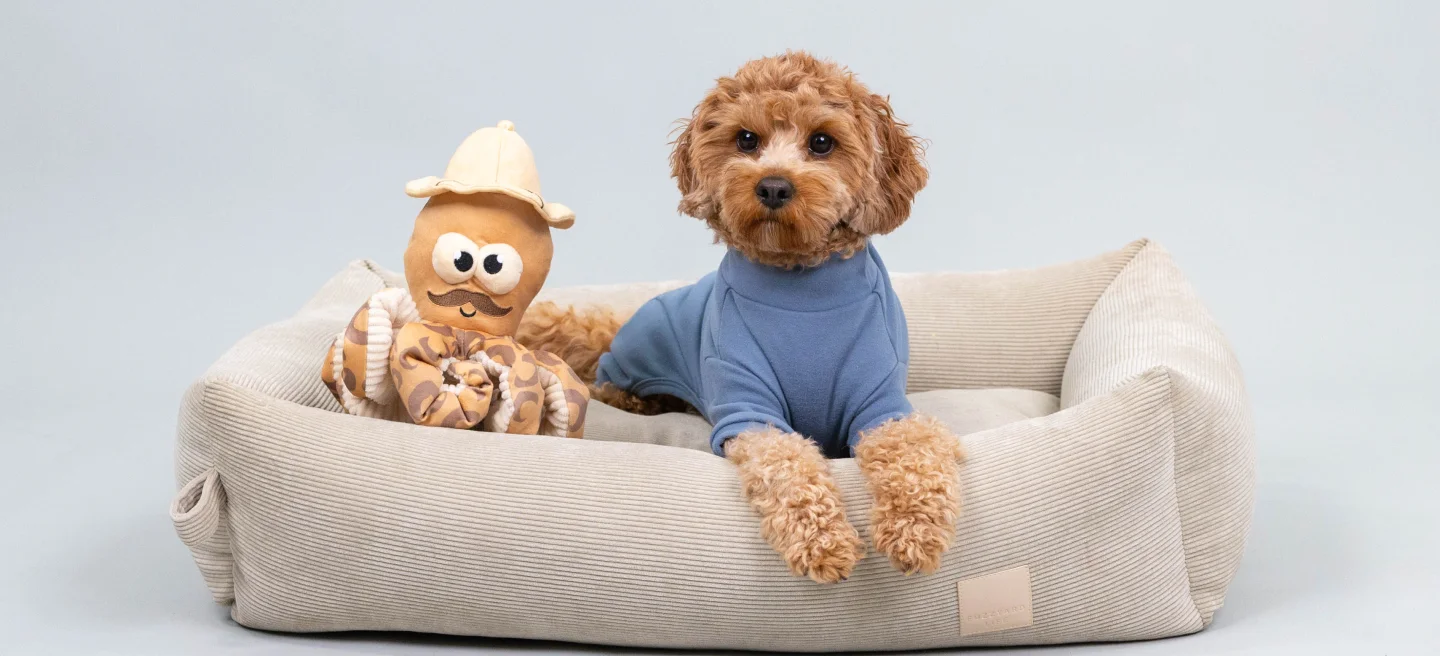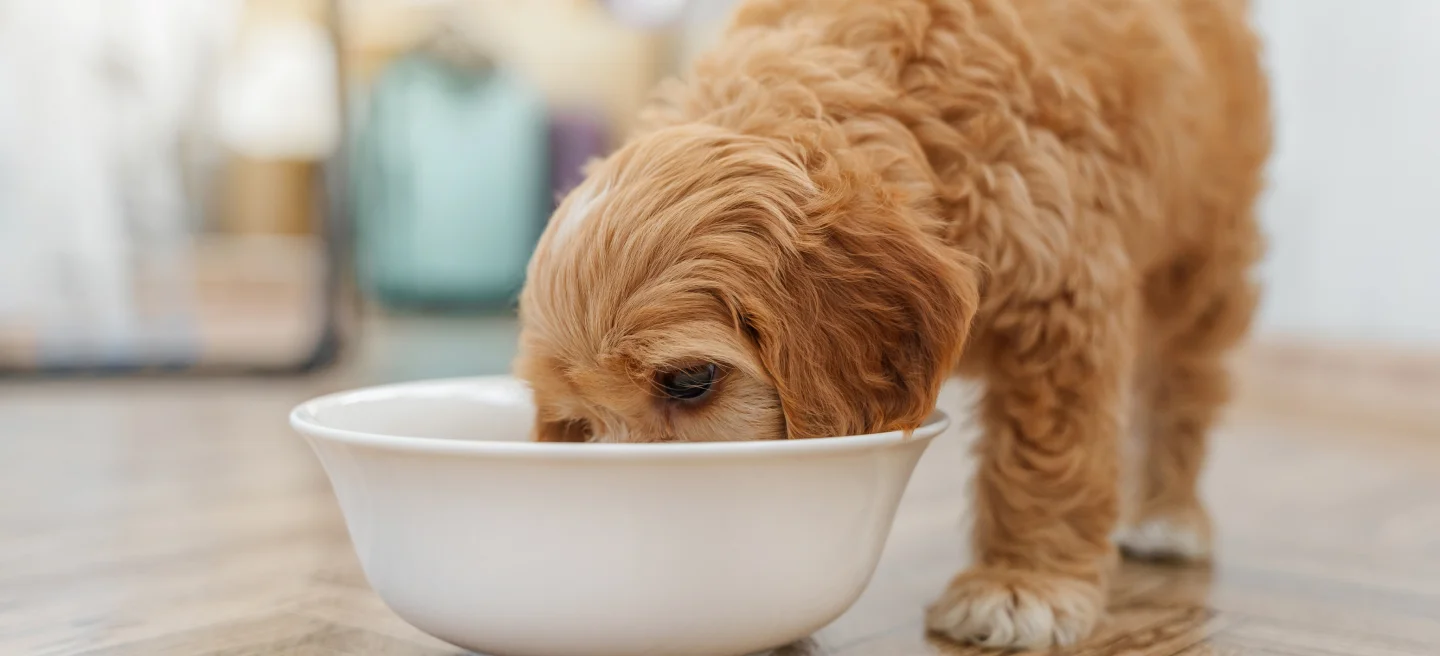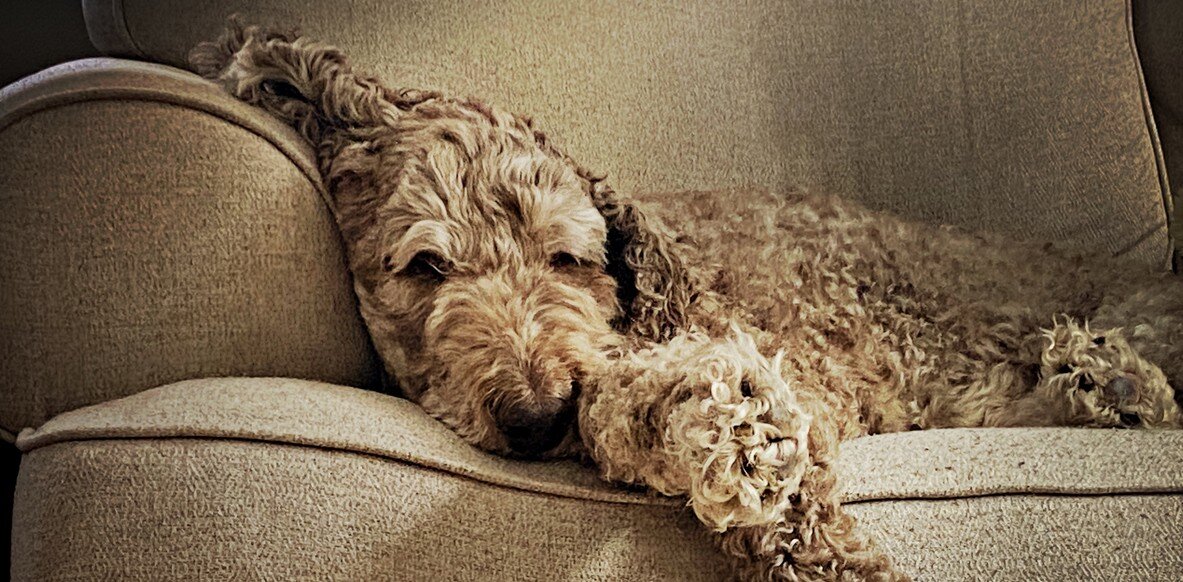Last Updated: 21/10/2025
Ultimate Oodle Guide
Thinking of getting an Oodle? Our expert vet explains why crossbreeds like the Cavoodle and Labradoodle are so popular. This guide details their unique characteristics, grooming needs, exercise, and family-friendly temperament. Plus, get tips on feeding and finding a responsible breeder or rescue.
Author: Dr Teagan Lever BVSc (Hons)
Reading Time: 5 minutes - short read
In the past few years, Oodles have soared in popularity in Australia. Between 2021 and 2023, the Cavoodle was the number one dog nominated by Pet Circle customers in their pet profile, with Oodle mixes making up 6 of the top 50 dogs listed (Cavoodle, Labradoodle, Groodle, Spoodle, Moodle, Schnoodle). These popular crossbreeds are so sought-after that some brands, such as ADVANCE™, have even created products specifically for 'Oodles'. In this article, we will look into the characteristics and traits of Oodles, why they are so popular, how to take care of them, and where you can get an Oodle of your very own.
What is an Oodle?

Oodles (also known as 'Doodles' outside of Australia) are a crossbreed between a purebred Poodle and another dog breed.
The first Oodle was developed in the 1980s by crossing a Labrador with a Poodle. This crossbreeding aimed to create a hypoallergenic guide dog for a visually impaired woman whose husband had allergies to dogs.
Some examples of popular Oodle include:
- Cavoodles (Cavalier King Charles Spaniel + Poodle)
- Labradoodles (Labrador + Poodle)
- Spoodles or Cockapoo (Cocker Spaniel + Poodle)
- Groodle or Goldendoodle (Golden Retriever + Poodle)
Characteristics of Oodles

How big do Oodles get?
Oodles can vary in size from small (eg. 5-12kg for a Cavoodle) to large (up to 45kg for a Groodle) depending on the size of the poodle parent (toy, miniature, medium or standard) and the size of the other breed parent.
What is the lifespan of Oodles?
As for other breeds, size can influence the lifespan of Oodles. Typically small (under 10kg) and medium (10 to 25kg) dogs will live between 10 to 15 years of age. Large (over 25kg) dogs tend to have a shorter lifespan of around 8 to 12 years.
What are the grooming needs of Oodles?
The grooming needs of Oodles varies depending on their coat type, which is determined by their genetic lineage. For example, the coat of a Labrador crossed with a Poodle will differ from that of a Labradoodle crossed with a Poodle.
Fleece: Soft textured and shaggy, this type can vary from almost straight, to wavy or soft spiralled with no undercoat. The fleece coat sheds very minimally and has moderate care requirements, requiring thorough brushing at least once a week.
Wool: Similar to the coat of a Poodle, the wool coat type is formed by tight spirals and is virtually non shedding. Dogs with this coat type should be brushed daily and visit a professional groomer every 6 weeks to prevent mats.
Hair: This coat type can vary in length, but is straight and scruffy in appearance. It does not require much maintenance but does shed, making 'Oodles' with a hair type coat less allergy friendly.
Regardless of coat type, feeding a premium quality food like ADVANCE ™, that is enriched with added omega 3 fatty acids and skin barrier nutrients is one simple way you can help keep your Oodle's coat healthy and shiny.
How much exercise do Oodles need?
The exercise requirements for Oodle dogs can differ depending on factors such as their size, age, and individual energy levels. As a general guideline, Oodles tend to be active and require a moderate amount of exercise to keep them mentally and physically stimulated. Around 30 minutes to 1 hour of exercise each day, including walks, playtime, and engaging activities such as fetch or agility training is a good place to start.
For more information, read through our guide to How Much Exercise Does Your Dog Need?
What should I feed my Oodle?

Oodles should be fed a high quality, complete and balanced diet that is tailored to their age, size and specific health needs. For example, small sized Oodles can be at risk of developing heart problems, while larger Oodles may be predisposed to joint and mobility issues, such as hip dysplasia and arthritis.
ADVANCE ™ dog food offers super premium, science based and Australian made formulas specifically customised for Oodles.
Each dry food diet in the ADVANCE ™ pet food range is formulated with beneficial nutrients, including:
- Omega 3 and 6 fatty acids to support healthy skin and coat
- Antioxidant Vitamin E to help support a dog's natural defences
- Prebiotic fibre to support ideal stool quality and a healthy gut microbiome
Why Are Oodles So Popular?
Oodles can be hypoallergenic
A major reason for their popularity is the reason the first Oodle was created; depending on their coat type, Oodles can be virtually non shedding, making them a great option for people with allergies to dog hair. This is also a drawcard for pet parents looking to avoid hair tumbleweeds around their house.
Intelligence and trainability
Oodles are generally known for their intelligence and trainability. Poodles are highly intelligent and this trait is often inherited by their crossbreeds. This means Oodles tend to be quick learners and can excel in obedience training and other dog sports.
Family friendly nature and good temperament
Each dog will have a unique personality and nature depending on their genetics and upbringing, however there are some characteristics often associated with Oodles including:
- Friendly and sociable nature: they tend to be outgoing and enjoy being around people, including strangers and children.
- Affectionate and loyal: Oodles form strong bonds with the humans in their lives.
- Good with other pets: if properly socialised, 'Oodles' can get along well with other pets, including both cats and dogs.
Where to Get an Oodle

If you're looking to get an Oodle of your own, start by doing some research to determine what kind of Oodle will best suit your family, home and lifestyle. Remember that a dog or puppy is a lifelong commitment.
Learn more about How to Prepare for a New Puppy.
Finding an Oodle breeder
Many pet parents will source their Oodle directly from a breeder. Unfortunately there are many people looking to capitalise on the increasing demand for Oodle puppies, which can result in unethical breeding practices and animal welfare concerns. For this reason, it is best to avoid online marketplaces or social media groups when searching for a puppy, a better place to start is to ask your local vet or use an ethical breeder platform like RightPaw.
For more information, learn How to Find a Good Breeder.
Oodle rescue groups
Before seeking out a breeder, we recommend considering whether you could offer a loving home to an animal in need. Head to Pet Rescue to search for dogs near you that are looking for a furever home.
Given their intelligence, trainability, loyalty and family friendly nature, coupled with their low allergen coat types and range of sizes, it's no surprise that Oodle's have become some of Australia's favourite dogs.
Articles recommended for you
Our vet authored guide to the benefits of feeding your dog fresh food plus tips and advice for introducing it into their regular menu.
See our guide to protecting your pet from parasites from our vet team.
Thinking of getting a fish? Check out our guide for setting up a tank and home care tips!
Looking to understand horse feeds better? This comprehensive guide covers feeding recommendations for horses of all ages and disciplines.
Does your pet suffer from anxiety? Check out our Vet-guide for treatment options to help your pet.
History
Our experts continually monitor the health and wellness space and we update our articles when new information becomes available.
Tue 21 Oct 2025
Edited by Dr Gillian Hill BVSc (Hons)Dr Teagan Lever BVSc (Hons)
Head Veterinarian, BVSc (Hons)
Pet Circle's Head Veterinarian, Dr Teagan graduated from the University of Queensland in 2010 and went on to work in small animal and mixed practice in various locations around QLD & ACT before joining Pet Circle in early 2016. Dr Teagan has special interests in dermatology, nutrition and preventative health care. She feels privileged to witness the special bond people share with their pets on a daily basis and enjoys forming lasting relationships with pet parents and their fur children.

